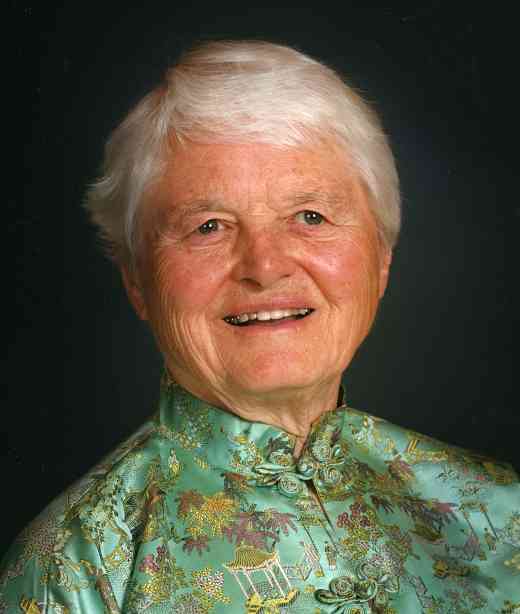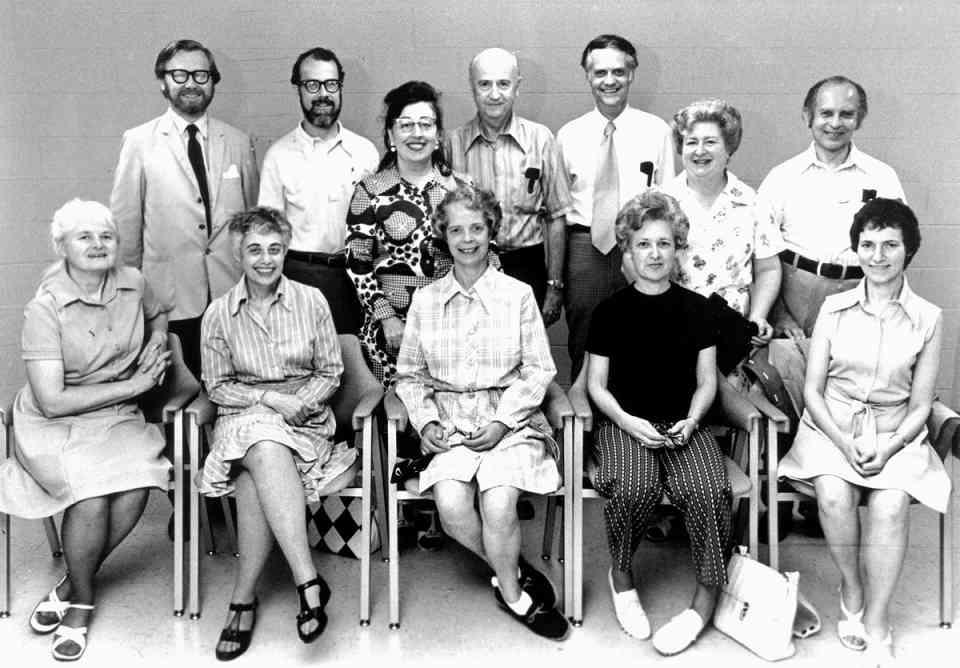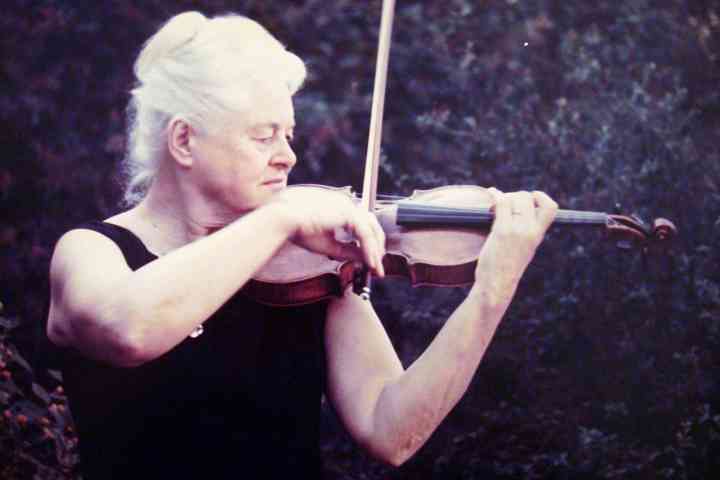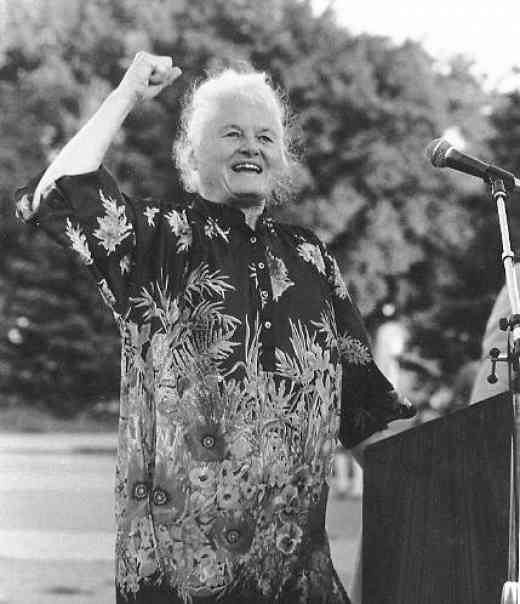Margery Aber Memorial Scholarship

Margery Aber
The Margery Aber Memorial Scholarship is awarded annually to a string player for Suzuki Unit 1 training.
Biography
Margery V. Aber was born on 15 February 1914. She attended Oberlin College and received a performance degree in violin and in music education. She also received a master’s degree in music education from Columbia University. She taught string music for thirty years in the Detroit Public Schools before accepting a faculty position at the University of Wisconsin-Stevens Point in 1967.
Miss Aber was among the first American string teachers to visit Matsumoto, Japan as part of the American String Teachers Association tour in 1967. She became acquainted and passionate about Dr. Shinichi Suzuki’s philosophy of teaching string music to young children and upon her return began using the method in the UWSP Laboratory School. In 1974, the lab school was closed and she and parents, under the umbrella of UWSP, founded the American Suzuki Talent Education Center (now Aber Suzuki Center).
In 1971 she founded the American Suzuki Institute, a two-week summer program modeled after Dr. Suzuki’s summer school in Japan. It was the first institute in the world outside of Japan and the template for Suzuki Institutes still today. Dr. Suzuki taught at the institute twice in 1976 and in 1984. Because the American Suzuki Institute brought together many teachers from various parts of the country, it was during the 1972 institute that the Suzuki Association of the Americas was founded.

1973 SAA Board of Directors
Miss Aber was also responsible for developing one of the first university degree programs to incorporate Suzuki string instruction into the curriculum. In 1990 she was the impetus for developing the International Research Symposium on Talent Education, a biennial conference sponsored by the American Suzuki Institute and the SAA to foster research in the method.
Miss Aber was also an active clinician, teaching at many Suzuki workshops and institutes in the US, Canada and Europe. She introduced the Suzuki method to Germany and Estonia and helped to set up an institute in Belgium. In 1983 she was part of a tour group that took the Suzuki method to mainland China.

Miss Aber was an outstanding violinist and teacher. Even as a teacher in the Detroit public schools, her orchestras received many accolades. In addition, seven of her students then became members of the Detroit Symphony Orchestra. In Stevens Point many of her students continued their studies at prestigious music schools throughout the country and went on in music careers. Her students play in the Boston Symphony, the National Opera Orchestra- Kennedy Center, the Radio Symphony Orchestra of Frankfort and the Staatskapelle Dresden to name but a few. She also trained many Suzuki teachers.
Margery wrote many articles for the American Suzuki Journal and at age 85 authored a book entitled Hip, Hip, Hooray! 30 Years with the American Suzuki Institute. On August 15, 1980 she received the SAA Distinguished Service Award for establishing the first American Suzuki Institute.
Miss Aber died suddenly on August 16, 2001 during the American Suzuki Institute at the age of 87.
A Story
For kids and graduate students alike, Marge made learning fun. If a student was feeling sleepy, there was a race out the door and around the Suzuki House usually with her in the lead because she got a head start. Many of us remember Miss Aber’s seasonal dress for the marathons—all red slacks and a red turtle neck with hearts on her socks for Valentine’s Day or a solid green outfit with ornaments pinned all over herself for Christmas. She certainly got our attention.
It was no different in teacher training classes either. When I was doing my graduate degree we had classes in the Suzuki House in the evening in the summer. That was after Marge had already put in a 12 hour day preparing for the institute and teaching lessons. Marge didn’t want the windows open in her studio because the traffic noise from Main Street got on her nerves. But her studio was not air-conditioned either.
One night it was about 85 degrees and humid when a fellow student and I arrived for our class. She told us to take our books and get in her car. We obediently did as we were told and she got in and drove us to Jordon Park. Then she said, “Now take the canoe off my car.” We did and we were told to take our books with us and get in. Kathy and I thought we were off the hook and wouldn’t have to give our reports, but quite to the contrary, there were the three of us sitting in the middle of Jordon Pond discussing philosophies of music in the quiet and cool of nature. Of course, Marge loved the summer for its fresh fruits and vegetables so she managed to sneak a bag of Bing cherries in the canoe with her for a snack. After that, however, class quickly degenerated into a pit-spitting contest from the canoe.
Marge’s Philosophy: Life, Suzuki Education, Music

What students remember and what I appreciate more as time goes on, is Miss Aber’s encouragement, her belief in us. She never gave up on a student. She kept trying to find ways to inspire us to be better. Oh, she was also very honest in her critiques too, but you always knew that she believed you could do anything you put your mind to even when you weren’t so sure. She didn’t believe in limits for herself, much less for her students.
Marge would light up when she was teaching children and was very much in touch with her inner child, but she thought training teachers was extremely important too. Teacher training was one of her main goals of the Institute. Besides violin, under her direction, the American Suzuki Institute was the first to offer teacher training in cello, piano, flute and harp.
She didn’t want teachers to be a clone of her, but she tried to instill in us the values she thought important, values such as creativity, high standards, to be life-long learners, to see the potential of each child, to discover the way that each child learned, to never give up on a child. She always reminded us that Dr. Suzuki said that students should be better than their teacher both in playing their instrument and in their teaching and she was always happiest and most proud when she thought we had accomplished that.
Marge was also a risk-taker and because she had confidence in us and because she believed that the future belonged to the next generation, she often gave young teachers a chance to teach at the institute. There are many of us who got our start as clinicians at ASI, and there are many of us that were encouraged by her to take on leadership positions in whatever opportunities life offered us. She was eager to pass on the torch to the younger generation.
Marge’s Association with SAA and Causes
- Founded the first Suzuki institute outside of Japan in 1971
- The Suzuki Association of the Americas was founded at the American Suzuki Institute in 1972 with Marge on the original Board of Directors
- Member of the SAA committee to develop the teacher training unit system
- SAA Distinguished Service Award in 1980
Quotes From Marge
“Parents are the teacher’s assistant in teaching the child the violin and teachers are the parent’s assistant in developing the child character.”
“Good, better, best. Never let it rest. Until your good is better and your better is best.”
“Always leave it better than you found it.” (“It” could be anything from cleaning the kitchen to the music you were practicing)
Quotes About Marge
“Marge’s knowledge about the violin and teaching was vast, but maybe more importantly was the way that she taught her lessons in music and in life. She was an ardent disciple of Dr. Suzuki’s philosophy that the environment shapes both our musical tastes as well as our character development. That, as you know is a Suzuki teacher’s ultimate goal, not to mass produce prodigies, but noble caring sensitive human beings. So Marge aspired to be the best example in her violin playing, in her teaching and in character so to inspire us to be the best that we could be. Yes, each of us is a teacher, whether by profession or not, who teaches what she/he is before we teach what we know. That is both our heritage and our responsibility to the future. It is the legacy that Marge would want us to continue to share. And we can, because as Dr. Suzuki said and Marge embodied, “Where love is deep, much can be accomplished.’”
—Pat D’Ercole, Aber Suzuki Center Dedication, 2005
“Even when I was four and could barely play Twinkle myself, I can remember the spunky lady who played with such gusto. Later of course, there was the gentle ribbing tempered with sincere praise and encouragement from a true teacher with a twinkle in her eye. Through the years she has always awed me with her generous heart, deep passion and bright spirit. It is my privilege to have been one of her Suzuki kids.”
—M. Chang
